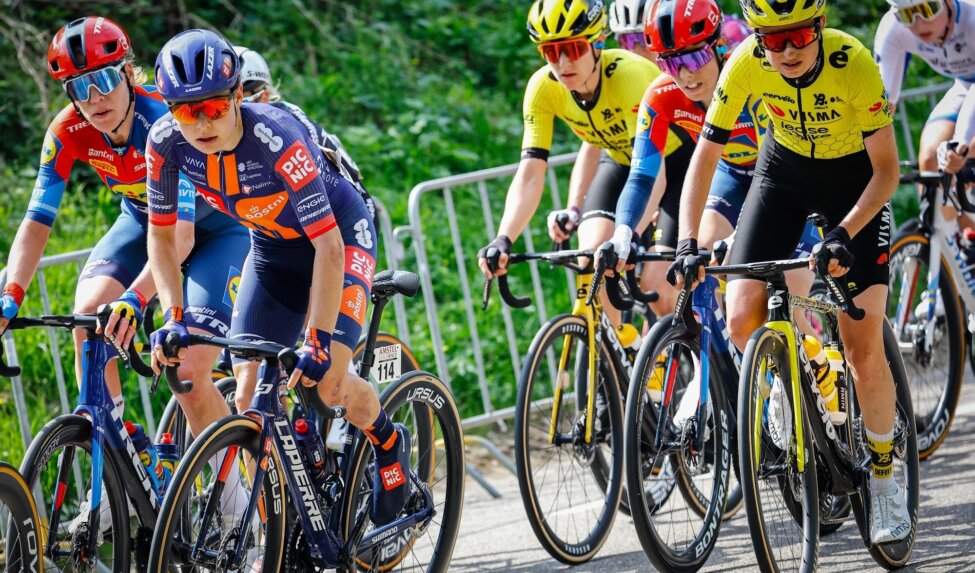One crash too many for Primoz Roglic, though there is hope for safer racing
At home with his wife and child, Primoz Roglic is fighting off the pain. Physically, because the Slovenian smashed into the asphalt while sprinting in stage 16 of the Vuelta a España. Mentally, because Roglic had to withdraw from a major stage race with bruised and bloodied limbs once more. It meant an abrupt end to his ambition of becoming the first rider to win the Vuelta four times in a row. But even more than that, it was how the Olympic time trial champion suffered that hurt.
"This was not okay", the rider of Team Jumbo-Visma refers to the collision with Fred Wright, who finished fourth. "This shouldn't happen. People move on swiftly as if nothing happened. For me, that doesn't apply. This is not the way I want the sport to continue and I want to make that clear."
The three-time Vuelta a España winner reported feeling 'slightly better' this morning. He refrained from commenting on whether he will be able to continue the season. "I can walk a little bit. I am happy with that for the moment. After the crash, it took me time to straighten things out. I asked myself: how can this be? My conclusion is that the way this crash happened is unacceptable. Not everyone saw it correctly. The crash was not caused by a bad road or a lack of safety but by a rider's behaviour. I don't have eyes on my back. Otherwise, I would have run wide. Wright came from behind and rode the handlebars out of my hands before I knew it."
"After the crash, it took me time to straighten things out"

Roglic's account is relevant in a broader context: the issue of safety. Richard Plugge, CEO of Jumbo-Visma and currently also president of the AIGCP (the association representing the team's interests), visited the UCI in Aigle this past week. The topic was a top priority there. Plugge co-founded the 'safety working group', which was established after the terrible incident in Poland involving Fabio Jakobsen and Dylan Groenewegen. The working group is making progress in favour of safer racing conditions.
To organise the safety management of - initially - the WorldTour, one or more professional experts must be appointed by 2023, according to the UCI and the other stakeholders. Race behaviour is one of the facets they have to work with.
"I'm glad that Primoz is speaking out"
Plugge: "Research has been done into numerous racing incidents. They have been mapped out in a database. The causes were categorised. Obstacles, for example. As well as 'rider's own fault' or 'other rider's fault'. We are right to talk about unsafe spots in a course, such as the threshold in Burgos. However, research shows that the riders' cycling behaviour is to blame for a crash in about half the cases. Not braking, but pushing through, for example. It doesn't surprise me because every rider has the will to win. I would like to say: brake and use your brains. It requires a change of behaviour, driven by awareness and consistent judging. Shortly after the incident in Poland, it almost went wrong in Milano-Sanremo for the 3rd and the 4th place. Fortunately, that ended well, but the behaviour remained unpunished. We have to deal with that properly."
Plugge notes a remarkable phenomenon. "Ten years ago, the older riders were sounding the alarm because the younger ones showed less respect, took irresponsible risks, and pushed their way through everything. The younger ones of yesteryear are the older riders of today. But you still hear the same discussion, even though we are a generation ahead. So that has to change. I'm glad that Primoz is speaking out, looking in the mirror and naming the behaviour of riders as well."












